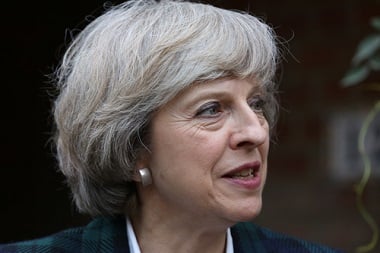Ann Francke: It’s time for Britain first, not party first

In the wake of the general election result throwing up a hung parliament, CMI’s chief executive said it is time for party differences to be put to one side and lessons to be learned from the results of these campaigns
Matt ScottThe nation has spoken, and it seems as if the UK public does not know who it wants for its next government.
After calling a shock snap election, Prime Minister Theresa May was expected to lead the Conservatives to a landslide victory in yesterday’s general election, winning seats and strengthening her position ahead of the crucial Brexit negotiations due to start in just a couple of weeks.
But even as the exit polls were released at 10pm, it was clear that this was not going to be the case.
Instead, when the final votes had been counted (and re-counted on several occasions) the Conservatives had lost a total of 12 seats, with a 9.6% swing to Labour meaning May and her team fell 11 seats short of the 326 needed to form a majority government.
CMI chief executive Ann Francke said that while the result was a surprise to many, the way the two campaigns from the two leading parties played out meant that such a result was always on the cards.
“The Conservative campaign was led and managed in a way that lacked transparency, was not inclusive and did not inspire trust,” she said. “The Conservative politicians did not keep to consistent positions on a number of issues, and on one of the largest issues, Brexit, it ignored the opinions of large swathes of the electorate, including CMI members, as it pursued a hard Brexit – only one in five people wanted that.
“On the other side, the Labour campaign had clear visibility of leadership, was very inclusive and they were very clear in their manifesto, targeting people with policies they knew would resonate.”
Francke added that the contrasting nature of the two campaigns presented managers with an important learning opportunity.
“The two campaigns act as a how to do it and how not to do it,” she said. “It is extraordinary that the how not to do it example comes from the obvious favourites at the start of the election, and this is also a good reminder for managers that, no matter how strong your position may seem, you cannot take anything for granted.
“You cannot be perceived as invisible, distant and arrogant as a leader, and rely on a small team of advisers. You have to seek out broader inclusiveness and broader views.”
Francke continued: “This is also a lesson for managers not to take unnecessary risks. Theresa May did not need to call this election, and it was an own goal in that respect. It is just like the EU referendum, which also backfired.
“There are necessary risks and unnecessary risks, and managers need to be careful of taking the unnecessary risks, as things can and do go wrong.”
Cautious Optimism
While the ongoing uncertainty of still not knowing who will be leading the country will be an undoubted negative for British business, Francke is optimistic that the result of this election could have a positive impact on the future of British politics and the way the different parties interact.
“This result is a call for any party that is going to be leading the government to be more mindful of including a broader spectrum of views – they will have to be because no one party has a majority,” she said. “So, they will have to reach out and be more inclusive in their policies, in their thinking and in the shaping of their policies.”
This will, in turn, help in the way the next government negotiates Britain’s withdrawal from the European Union.
“While I don’t see a grand coalition of the Labour and Conservative parties,” she said, “I can see a way whereby Brexit is negotiated in a cross-party way, where more people and views are included in the discussions. We at CMI would be in favour of that because it is a less political and more Britain first, people first, economy first, future first approach, rather than being all about holding it all to party politics.
“If that happens, I think it will soften Brexit and be welcomed by the managerial and business communities.”
“But first we need to get over the hump of this unexpected uncertainty, which is not a good thing,” she added.
Read more about CMI’s own Management Manifesto, and what it wants the next government to deliver on to help solve the £84bn productivity puzzle

Press & Media Enquiries
For more information or to request interviews, contact CMI's Press Team on 020 7421 2705 or email press.office@managers.org.uk


